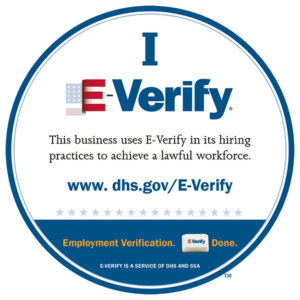How to Handle an Overqualified Job Candidate
Let’s say you are performing a job interview and all of the questions are answered perfectly by the applicant for the position. You grow more and more excited about the prospect of hiring her. And it hits you then: overqualified.
Ask, for instance, why the applicant is interested in working for your business, making it clear that you expect a specific and candid response.
The answer to this question will help you decide whether the person in your small business is likely to be committed to a position. If the candidate says he is looking for a less managerial duty to simplify his working life, this is a good indication that he will be satisfied with your company’s regular non-supervisory position. Listen as much as possible for genuine answers.
The candidate may also be looking for a job that offers more flexibility than she has in her present position. Or perhaps she’s looking for a career change. It is important to get a handle on this motivation issue, whatever the case may be because it could play into the long-term prospects of the person with your company.
When making a job offer, you can transform an overqualified job candidate into an A-player if you offer someone a good compensation package and a superior lifestyle. When interviewing an overqualified candidate, also consider the future plans of your business. Maybe a person isn’t a perfect fit for what you’re doing now but when you launch a new initiative or product six months from now she would be wonderful to have on board. While you can’t make any promises, as you consider whether to proceed with the hire, the candidate’s response to this discussion should be informative.
The salary and benefits package you’re likely to offer is another key topic to discuss. Be totally honest about this and measure the response of the candidate to what may be a lower wage than she has previously received.
The lifestyle of a person generally changes as their salary goes up, and cutting back a bit feels like one is going in the wrong direction. Consider accepting a counter-offer focused, ironically, on compensation. It can solve a specific problem for the time being, but it’s not a long-term solution. The candidate can take a lesser position with less money, but the first recruiter who comes knocking with a better title and a better level of pay and peace!
When you consider a candidate who seems overqualified for your position, this retention problem is likely to be a primary concern. It’s important to remember, however, that you need all kinds of people to make your business successful, and the key to boosting others on your team may be a more experienced recruit.
A study examining the link between overqualification, job satisfaction, and turnover found that job empowerment helped lessen the worries of employers regarding overqualified workers, says an article in Workopolis. Empowerment means granting workers responsibility or autonomy in their positions.
People from a variety of backgrounds, skill sets, and experience often make up the best teams. Employers can tap into a pool of self-aware and motivated employees eager to find a new challenge by being open to candidates who could seem overqualified on paper.
Finish your interview by asking the overqualified person some more general questions to make sure you’ve found one of those self-aware candidates. A Monster article suggests that you directly approach the problem: How do you feel about coming from your last position to this position? I am curious about why you are interested in this company and what would keep you here.
Finish with open-ended interview questions: What concerns do you have about the size or culture of the organization? What do you want to ask me? Avoid candidates who only ask about things, such as time off or pay, that affect them. Focus instead on applicants whose answers and questions reflect an interest in how they can benefit you and the growth of your business.
Conclusion
It’s OK to have concerns about overqualified applicants, but don’t automatically end the interview and move on to the next applicant if you come across such a guy. If you carefully focus your questions, you might end up recruiting someone who is going to be a stronger, more loyal, and more efficient employee than you thought. That could make your whole team stronger, so the risk could be worth it.














